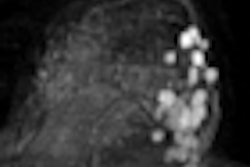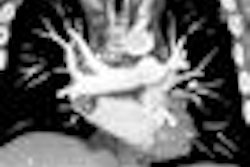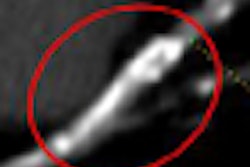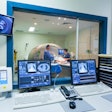VIENNA - With tissue-conservation procedures among the most common surgical treatments for breast cancer, imaging techniques that accurately probe the depths of disease status surely prove invaluable. Or do they?
A pair of presentations, one from the Netherlands and one from South Korea, from this week's European Congress of Radiology (ECR), confirms previous research that breast MRI can positively guide patient care and affect outcomes.
Preoperative breast MRI results change the approach to surgery for more than one in four patients, noted Dr. R. Mann of Radboud University Nijmegen Medical Centre in Nijmegen, Netherlands. Changes to treatment might include opting for larger lumpectomy, converting to a mastectomy, or (as occurs in about 5% of cases) changing to a less invasive therapy.
Although pathological assessment confirms the validity of the MRI results in nearly 90% of cases, Mann had failed to find much published evidence that a preoperative MRI strategy positively affects final outcomes.
The group therefore undertook a retrospective evaluation of 267 patients treated surgically at two major cancer centers in the Netherlands for invasive lobular breast carcinoma (LBC), accounting for 10% to 15% of all breast tumors. The effect of breast MRI on the re-excision rate was assessed using the chi-square test, with the group also looking to evaluate effects on final mastectomy rates.
Of the 267 patient procedures studied, 99 included preoperative MRI scanning. Tumor stage distribution between the groups was not significantly different (p = 0.6).
While there was no major difference in the final mastectomy rate between the scanned (48%) and nonscanned groups (59%), results revealed a significantly lower re-excision rate, at just 5% for the scanned group versus 15% in the nonscanned group (p = 0.01).
Mann concluded that as preoperative MRI had been shown to "reduce the re-excision rate significantly in patients with invasive LBC, without increasing the rate of mastectomies, the option is highly recommended" for optimizing treatment.
MRI aids surgical planning
In related work, a study led by Dr. Jee Eun Lee of the University College of Medicine in Seoul also concluded that preoperative MRI significantly affects the surgical management of breast cancer patients.
Lee's study evaluated 76 breasts in 75 women with breast cancer preoperatively with MRI and ultrasound, with data collection ending in 2008. Results were correlated with whole-breast histopathology. Patients eligible for breast-conserving surgery were identified using ultrasound, enabling the researchers to evaluate the conversion rate from planned to modified radical mastectomy (MRM).
The table below shows a diagnostic comparison between the three detection methods:
|
The decision was made to change treatment for 16 breasts to MRM, based on MRI results that prompted additional suspicions of malignancy. Histopathological results confirmed the validity of these decisions in 14/16 breasts (88%).
In total, 55 of the 76 breasts were planned MRM procedures based on ultrasound detection of 18 multicentric cancers, unifocal or multifocal cancers near the nipple (n = 31), and unifocal or multifocal lesion extensions toward the nipple (n = 6).
In conclusion, Lee commented: "Breast MRI has a significant effect on the surgical planning of breast cancer treatment and should be performed as a preoperative evaluation."
By Rob Skelding
AuntMinnie.com contributing writer
March 10, 2009
Related Reading
MRI helps predict breast cancer invasiveness at surgery, December 1, 2008
Preoperative breast MRI boosts breast conservation, October 9, 2008
Breast MRI develops role as surgical planning tool, September 2, 2008
Preoperative MRI helps detect additional breast cancer, but may delay treatment, July 25, 2008
Copyright © 2009 AuntMinnie.com











